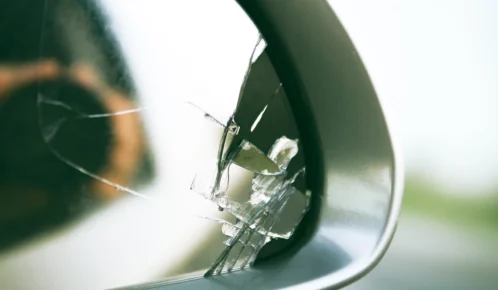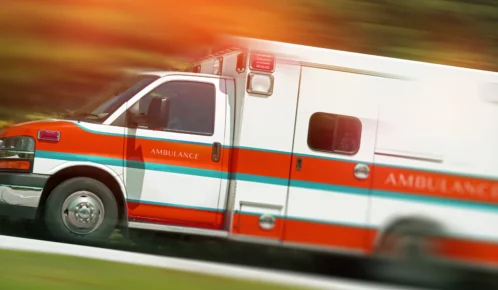Was your injury or illness caused by medical malpractice? You may qualify to file a lawsuit to recover compensation for damages. Who can be held liable for medical malpractice depends on Illinois laws and the sequence of events. Medical institutions and various types of medical professionals can be held liable for your damages.
Table of Contents

Who Can Be Held Liable for Medical Malpractice in Illinois?
In Illinois, medical professionals take an oath to protect their patients from harm by providing proper medical care. Medical institutions and practitioners are held to strict health and safety standards for providing services to patients. Medical practitioners are expected to uphold their Hippocratic Oath and provide care to all patients to prevent unnecessary injury, illness, or death.
When medical malpractice results in patient injury, illness, or death, who can be held liable for medical malpractice in Illinois? Medical facilities like hospitals, clinics, and urgent care facilities, as well as individual medical professionals like doctors, surgeons, nurses, lab technicians, emergency medical professionals, dentists, and pharmacists can be held liable for medical malpractice with valid proof.
Physicians and Surgeons
Doctors and surgeons who fail to provide the expected standard of care to their patients can be sued for medical malpractice. Doctors and surgeons commonly face medical malpractice lawsuits that involve “never events,” which are linked to serious patient injuries, illnesses, and death. Never events are events that should never happen. They are caused by medical errors and egregious misconduct, like operating on the wrong patient, removing the wrong body part, or leaving medical equipment like clamps, scalpels, gauze, and sponges inside a patient.
When cases involve surgical malpractice, a medical malpractice lawyer may collect evidence of surgical errors, improper surgical techniques, or inadequate postoperative care to build a strong case for damages. Medical records, expert testimony from other surgeons, and video evidence from the operating room are usually collected to establish liability.
Nurses and Nurse Practitioners
Can you sue a nurse for medical malpractice? Nurses and nurse practitioners can be held liable for damages when negligent actions result in patient harm. In many medical malpractice cases, registered nurses, licensed practical nurses, nursing assistants, and other nursing staff can face an Illinois medical malpractice lawsuit if their actions or omissions deviate from the accepted standard of care and result in harm to the patient. Medical malpractice cases often involve failure to follow established protocols, neglected critical patient assessments, and medication errors.
Under the legal doctrine of vicarious liability, hospitals are responsible for the actions of their employees like doctors, nurses, and lab technicians, if they are acting within the scope of their regular duties. However, legal liability may apply whether these professionals are deemed to be employees or independent contractors.
Hospitals and Healthcare Facilities
Hospitals and medical facilities fall under the legal doctrine of vicarious liability, which means they can be held liable for the actions of their employees. However, in Illinois, the Tort Immunity Act provides immunity from liability to public entities and their employees in the event of hospital or medical negligence for an act or omission by an employee, physician, or other hospital-employed medical provider when the malpractice claim is based upon a misdiagnosis.
Additionally, hospitals, clinics, and urgent care facilities have a responsibility to operate safe, clean facilities to ensure the safety of their patients and protect them from germs and infections. If negligent actions expose patients to dangerous pathogens, contagious diseases, or known staff behavioral problems like alcohol or substance abuse, patients can file a civil lawsuit through a medical malpractice lawyer to recover compensation for damages.
Other Liable Parties in Medical Malpractice Cases
There are other parties who may be held liable for medical malpractice. In some cases, patient harm is caused by parties who have less direct contact with the patient. Although these parties may have indirect contact with patients, they may still be held liable when they cause illness or injury.
Anesthesiologists
Anesthesiologists are responsible for administering anesthesia during a medical or surgical procedure. When anesthesia errors occur, patients can suffer serious, life-threatening complications and anesthesiologists can be held liable for patient injuries, illnesses, and death. Common errors during anesthesia administration include inadequate preoperative assessments of the patient, dosage errors, and failure to monitor the patient’s vital signs.
Pharmacists
According to the Illinois Department of Public Health, more than 98,000 people die every year due to preventable medication errors. Prescription errors are one of the most common types of medical errors experienced by patients. Patients who suffer injury or illness from medication errors can file a lawsuit against the party who prescribed the medication based on negligence or malpractice.
Prescription errors often occur during a medication’s development, manufacturing, and distribution processes. Medication errors are most common at the ordering or prescribing stage. Writing the wrong prescription, prescribing the wrong dosage, and prescribing the wrong frequency account for at least 50% of all medication errors. Errors related to medication dosage often occur due to illegible handwriting by physicians, misunderstood symbols, use of abbreviations, and improper translations by pharmacists.
Medical Device Manufacturers
In some medical malpractice cases, medical device manufacturers may be responsible for a patient’s injury or illness. In such cases, victims can hold them liable if they sold a defective medical product and failed to warn patients and their doctors of the risks. Manufacturers can be held liable for patient injuries caused by defectively manufactured medical devices, medical devices with a defective design, and defectively marketed medical devices.
A Medical Malpractice Lawyer Can Help You Determine Liability
If your injury or illness was caused by medical errors or the negligent actions of a medical professional, a medical malpractice lawyer can help you determine liability. Your lawyer can explain who can be held liable for medical malpractice in Illinois and how to recover damages through a medical malpractice lawsuit.
In Illinois, injuries caused by medical negligence warrant a medical malpractice lawsuit. You can file a lawsuit to recover damages against licensed healthcare professionals and healthcare providers based on their negligence, misconduct, and medical errors or omissions. The definition of “healthcare professional” includes any licensed individual within these categories:
- physician
- dentist
- optometrist
- physical therapist
- clinical psychologist
The definition of “healthcare provider” includes any entity within these license categories:
- hospital
- surgical treatment center
- long-term care facility
- home health care agency
- emergency medical services personnel
What Are Common Examples of Medical Malpractice?
Common examples of medical malpractice include misdiagnosis or delayed diagnosis of a medical condition, improper patient medical care and treatments, anesthesia and surgical errors, medication and prescription errors, defective or old medical equipment, and failure of doctors to follow up with patients.
Filing a Medical Malpractice Lawsuit
In personal injury and medical malpractice cases, your lawyer can explain how to report medical malpractice in Illinois and the advantages and disadvantages of a civil court trial vs. an out-of-court settlement agreement. In Illinois, many medical malpractice cases settle out of court. The law does not require mandatory arbitration, mediation, or the submission of your medical malpractice case to a screening panel as a form of alternative dispute resolution before the claim reaches the trial stage of litigation. In comparison to a court trial, which can be costly and lengthy, a settlement agreement is often appealing due to the low cost and the expedited resolution.
If you choose to proceed to a court trial, proving causation in a medical malpractice case is essential. Your lawyer can explain the burden of proof that is required to win your lawsuit. When bringing a medical malpractice claim against a healthcare professional or provider, the burden of proof rests with you (the plaintiff). To win your lawsuit, your lawyer must prove four factors:
- Your doctor or other medical provider failed to provide a proper standard of care
- Your doctor or other medical provider breached his or her duty of care
- The breach of duty resulted in your injury or some type of harm
- Your injury or harm resulted in damages
If you suffered an injury or illness due to medical errors or negligent actions of a medical professional, contact us. We can help you build a successful case and get the compensation you need for your injuries.



